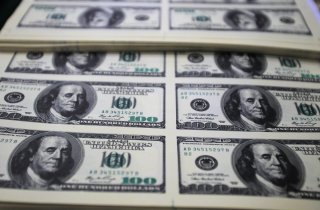Stimulus Check Problem: One Group Might Not Ever Get Them
Approximately seven million U.S. households do not have a bank account, according to the FDIC. And that can create a problem if you want that $1,400 check
The Internal Revenue Service has confirmed in its latest press release that approximately one hundred sixty-four million $1,400 coronavirus stimulus checks, with a total value of $386 billion, have been disbursed to date under the American Rescue Plan.
The number of checks sent out now represents more than 85 percent of the $450 billion total earmarked for stimulus funds.
Despite this success to help millions of cash-strapped Americans amid the ongoing pandemic, the IRS is also keenly aware that there are certain eligible individuals who do not have a permanent address or an open bank account.
To date, most of the stimulus payments have been disbursed automatically—either via direct deposits, paper checks, or prepaid debit cards. So, without a home or a bank account, it makes the IRS’ job that much more difficult to get the stimulus money into the hands that need it the most.
Know that this is precisely the reason why the agency developed and launched a non-filers tool last year for the first round of stimulus checks—but, unfortunately, that particular tool is no longer active. Currently, the best option is to take the necessary time and file a tax return, even if there was no income earned in 2020. According to the IRS, this is considered the fastest way to garner the necessary information to disburse the funds as quickly as possible.
There is also a way to claim either or both of the missing first two stimulus checks. The IRS has reminded those affected that for this tax season—which has been extended to May 17—a handy Recovery Rebate Credit has been added to all returns, so that people in this situation can eventually get their hands on the overdue payments.
The IRS website says that “if you didn’t get any payments or got less than the full amounts, you may qualify for the Recovery Rebate Credit and must file a 2020 tax return to claim the credit even if you don’t normally file.”
It adds: “People do not need a permanent address or a bank account. They don’t need to have a job. For eligible individuals, the IRS will still issue the payment even if they haven’t filed a tax return in years.”
The agency noted that these individuals may put the address of a friend or a relative to receive the funds, adding that an address of a shelter or a drop-in day center is also acceptable.
The fastest way to get a stimulus check, though, is still via direct deposit, which requires one to have an open bank account. Considering that, the IRS has been encouraging individuals to set up a free account at a local bank. To offer even more assistance, the Federal Deposit Insurance Corporation (FDIC) has launched a campaign that has already identified more than seventy banks and credit unions that are offering free or low-cost accounts.
Approximately seven million U.S. households do not have a bank account, according to the FDIC.
Ethen Kim Lieser is a Minneapolis-based Science and Tech Editor who has held posts at Google, The Korea Herald, Lincoln Journal Star, AsianWeek, and Arirang TV. Follow or contact him on LinkedIn.

